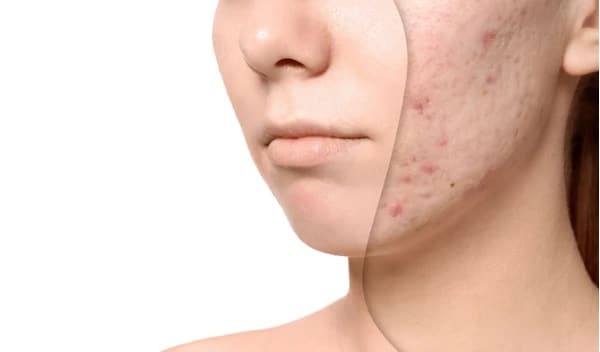You may be referred to a dermatologist in Singapore for issues like acne, eczema, and even skin cancer. To help with these conditions, dermatologists perform a wide range of procedures from skin biopsies, to laser treatments, and surgical excisions, etc. They also prescribe medications and skincare regimens.
If you're troubled with acne, a dermatologist is the right specialist you will want to see. Thanks to their extensive training on skin issues, you can count on a knowledgeable dermatologist to help you determine the type and severity of acne, prescribe appropriate treatments, and offer advice on skincare routines.
But, how bad does acne have to be to see a dermatologist? Keep reading to find out.

Often manifesting as skin blemishes like blackheads, pimples, and cysts due to hair follicles becoming clogged with oil and dead skin cells, acne itself is not typically dangerous to your overall health. However, severe acne can lead to scarring and emotional distress.
In some cases, acne can be a symptom of an underlying medical condition, such as polycystic ovary syndrome (PCOS) or hormonal imbalances, which may require medical attention. This explains why so many people with acne frequently ask; at what point should you see a dermatologist for acne?
In the vast majority of cases, acne affects adolescents. But it can affect adults as well, with causes and treatment options varying. The point at which you should see a dermatologist for acne is when you've tried over-the-counter treatments but your acne still doesn't improve and it still affects your quality of life.
A qualified dermatologist can provide tailored treatments and advice to help you manage and improve the acne effectively. Below are a few other instances to see a dermatologist for acne treatment;
When seeing a dermatologist for acne treatment, there are so many questions that may come to mind. If you've struggled with acne for so long, a common question that may cross your mind is; how long does it take acne to go away with treatment?
When you begin acne treatment, you must give the treatment time before you can see any improvement. This is important because, typically, it takes around four to six weeks for acne to go away with treatment. For acne to clear completely with treatment, you may need to wait for about two to three months or longer.
The secret for acne treatment is consistency. When you've begun an acne treatment, use it treatment consistently, even after improvement to prevent new breakouts.
You also do not want to switch products frequently as this can irritate the skin and also worsen your acne. That said, as a general rule, be sure to give each treatment enough time to work before trying something new.
If you're not seeing results after a few months, it may be helpful to consult a dermatologist for personalized advice and treatment options tailored to your skin type and acne severity. Here are a few things you can try if your acne won't clear;
You do not have to leave your acne to get to a point where it is unbearable to seek treatment. If you have acne-prone skin, do your best to prevent new breakouts. When seeking treatment, visit a board-certified provider for thorough assessment and tailored treatment.
We understand just how complex and frustrating acne can be. And that is why we insist on thorough assessments and tailored treatments. To learn more about our approach to acne treatment in Singapore or schedule an assessment, call or visit us at;
The Dermatology Clinic – Dr. Uma Alagappan | Adult and Pediatric Skin Specialist
321 Joo Chiat Pl,
#05-01A Parkway East Specialist Hospital,
Singapore 427990
OR
290 Orchard Road
09-01/02 Paragon Medical Centre,
Singapore 238859